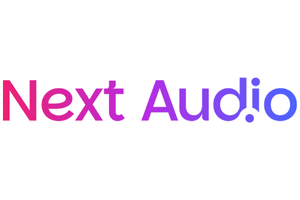This Week in the Business of Podcasting
Hello from underneath a blanket! You might have noticed I was not around this Monday, at that’s because an ice storm decided power was a privilege I didn’t need. I’m back, warm, and ready to hand over the news from this week. Also, good luck to all the travelers heading to Orlando for Podfest next week, you might just see me there!

Transparency. Performance. Automation.
The Business of Business Podcast Audiences
This Thursday from Tom Webster, an upcoming report from Sounds Profitable and American Public Media will launch a new series dubbed the Sounds Profitable Educational Series. The first live presentation will feature Tom debuting The Business Podcast Consumer, which looks at the consumption habits of business podcast audiences. Most notably, they are twice as likely to listen to self-improvement and health & fitness podcasts compared to the average podcast listener. A quote from Webster:
“From an ad sales perspective, this means that the types of messages this audience resonates with are more than just financial services-related! These consumers are looking to optimize more than just their wealth, but also their health (mental included) and their place in the sun. This makes advertising in business podcasts a wonderful vehicle for all kinds of products and services to an audience that has money to spend AND is already change-minded or at least open to improving their lives in any number of ways.”
More data will be premiered on Wednesday, January 15th, at 3:00 p.m. EST in a 30 minute presentation featuring special guest Kai Ryssdal from Marketplace.
YouTuber’s Exposé Might Impact Podcast Advertising Campaigns
This Tuesday from Tubefilter, affiliate marketing YouTube was recently rocked by an exposé video from YouTuber Metalag. Since 2012 the coupon code aggregating browser extension Honey (now PayPal Honey) has used YouTube content creators and podcast episode sponsorships to promote their product.
Users of Honey simply click a button when on the checkout page of an online shop and Honey tests several known coupon codes to save the user money on the purchase.
Another common way both YouTubers and podcasters drive income outside of sponsorships is affiliate marketing links for products mentioned/reviewed/recommended in their content. Generally, affiliate links leave a cookie in the user’s browser so if they don’t immediately buy the product and then come back later, the affiliate marketer still gets credit for the sale they drove.
Metalag alleges evidence that whenever PayPal Honey is used at the checkout page of an online store, Honey both wipes existing affiliate cookies and replaces them with Honey’s own cookie, giving the company credit for influencing the sale over the content creator. Which, if true, would impact any affiliate marketer the consumer had recently come into contact with, not just those who signed advertising deals with Honey. In response to Metalag’s video, a class action lawsuit has been filed against PayPal Honey by lawyer and YouTuber Devin “Legal Eagle” Stone.
While coverage is largely focusing on how YouTubers are responding to the Honey allegations, it’s worth noting this applies to all direct-to-consumer marketing efforts. If the allegations prove true, the popularity of Honey as a podcast advertiser could mean quite a few podcast promo campaigns have been impacted.
Anticipating What Might (or Might Not) Happen with TikTok
This Monday from Antoinette Siu at Digiday, as a possible TikTok ban encroaches, creators of all stripes are looking to preserve their audiences and imagine a future without the platform. After the Supreme Court’s decision in December to ban TikTok unless its parent company sells to an American publisher by January 19, the app is set to argue its case this month. ByteDance’s lawyers aren’t the only ones preparing: many online content creators, from influencers to small businesses, are making plans for where to go if the app goes under.
However, not everyone is worried. In the ever-changing landscape of social media, creators have long diversified their reach by planting a flag on multiple platforms, and while the loss of TikTok will be a particular thorn in video creators’ sides, other platforms like Instagram and YouTube shorts have video options that could fill the gap. Part and parcel advice to creators has always been to establish their content on as many platforms as possible, and this is not the first time there has been a potential mass shift away from one (i.e. many users’ flight from X to Bluesky at the start of this year).
For podcasters that utilize TikTok to share clips and viral moments, the platform has been a way of grabbing new listeners and drawing them to hit play on the actual show, making a potential ban less dire than, for example, a small business owner who uses the platform’s shop to take orders and its algorithm to find a majority of their customer base. Podcasters’ base camp is the show itself, and there are still plenty of viable places on the internet to promote it.
Influencer Marketing and the Rise of the Micro-Niche Creator
This Monday, according to Digiday’s Kimeko McCoy, marketing agencies are going small but mighty. Many have decided that micro and nano-influencers that reach niche communities are giving a better ROI than large influencers. By advertising products directly to specific communities that are tightly knit, businesses are finding that customers respond better to influencer collaborations and are more likely to close out a sale.
According to Greg Curtis Jr., director of influencer strategy at Empower Media, “The spend is absolutely skewing far more towards the nano and the micro influencer over the follower count just because of the genuine connection they have with their audiences.”
Podcasters are the ultimate niche influencers, with shows of every topic and point of view reaching millions of people every day. For example, host of the fragrance podcast Perfume Room, Emma Vernon, partners with the fragrance marketplace Luckyscent to sell curated sample packs and book club-style group fragrance testings. As brands look to connect with these groups, from True Crime fanatics to perfume enthusiasts, there’s no better bet than podcasts.
It’s Hard to Sell Soft News With Keyword Blockers
This Tuesday from AdExchanger, a recent Wall Street Journal piece highlights growing frustrations between news publishers and advertisers. While the struggle of publishers finding their content demonetized due to antiquated keyword blocklists has been an ongoing issue for years, certain publishers are reporting even their intentionally soft content gets caught in the crossfire. Back in September the Washington Post reported 40% of their inventory was deemed brand-unsafe, including a crossword puzzle due to a banned word appearing in a clue.
Other offenders include an article about a thunderstorm featuring a sentence describing thunder as sounding like “artillery”, which flagged anti-war blocklists. Lifestyle content also isn’t safe, as an article ranking boxed brownie mixes was flagged for discussing drugs because of a sentence fragment explaining the boxed brownie mixes were available at grocery stories, mass market retailers, and drug stores (for readers abroad: a common colloquialism for a pharmacy/chemist).
Which makes the notion that decreased expenditures in hard news have been shifted to ‘safer’ content from the same publishers less comforting. Even if advertisers move to softer sports and entertainment content, the same brand safety tools are flagging the ‘safe’ coverage.
Quick Hits
While they may not be top story material, the articles below from this week are definitely worth your time:
- Headliner and Sounds Profitable Release Paid Podcast Promotion Landscape In partnership with Headliner, we’ve released a free comprehensive guide to the world of paid podcast promotion.
- Podcasts are taking over TV screens as video formats grow increasingly popular by Angela Yang Why people are choosing video podcasts over traditional television, and what that means for podcasts considering pivoting to video.
- Navigating the landscape of serialized podcasts by Dan Misener Misener breaks down the pros and cons of a serialized show and what types of stories fit best into that model.
- NumberEight has raised $2.7 million for AI ‘privacy first’ advertising ID solutions The on-device AI startup is looking to grow, as well as expand to the U.S.
- 5 Things We Learned from 65,000+ Audio Listeners in 2024 By Paul Riismandel The Signal Hill Insights CEO shares what the company has learned from listeners in 2024.
- Gen Z’s revealing critique of Spotify’s Video Push By Steven Goldstein The Amplifi Media founder polled his NYU Business of Podcasting class- here’s what he found.













































































































































































































